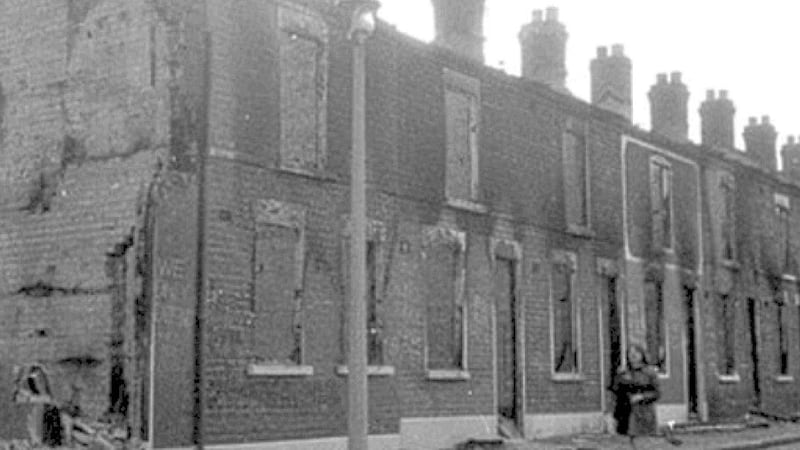A NEW book about thousands of Catholic and Protestant families displaced from their homes during the Troubles is shedding light on a forgotten trauma.
Paramilitary threats, house burnings and more subtle forms of intimidation changed the lives of both Catholic and Protestant families forever.
Alongside the horror of bombings and shootings, others left their homes silently in the middle of the night with whatever furniture they could carry.
While lives were rebuilt elsewhere, those displaced said they never regained a sense of belonging as they also lost jobs, schools, places of worship and social circles.
‘Refugees and Forced Displacement in Northern Ireland’s Troubles’ was written by Dr Niall Gilmartin from Ulster University and Dr Brendan Ciaran Browne from Trinity College Dublin.
Dr Browne’s own father was burnt out of the Cregagh area of east Belfast during the Troubles but had never discussed it with his family until recently.
Among 88 interviews with victims and survivors, one man recalls how his father smashed their house with a sledgehammer rather than hand it over to others.
He said his father never recovered from the indignity of being forced out of the home he provided for his family and was dead within two months from a heart attack.
High profile names who also experienced displacement included the IRA hunger striker Bobby Sands, the former Irish President Mary McAleese and the former First Minister Arlene Foster.
The full extent of how many were affected is unknown, but existing records show that at least 3,500 families were displaced in Belfast between August 12-15 in 1969.
As violence intensified, between 30,000 and 60,000 people were forced to evacuate homes in Belfast between 1969-73, accounting for a staggering 11.8 per cent of the city population at the time.
In Derry, the Protestant population of the city centre’s West Bank reduced from 8,459 in 1971 to 1,407 in 1991.
Elsewhere, intimidation saw the Catholic population of Newtownabbey reduced by 95 per cent between 1970-4, a reduction of 180 families down to 16.
In 1976, hundreds of Protestant families in the border areas of Armagh and Fermanagh fled as a result of a campaign of intimidation and murder.
Speaking to the Irish News, Dr Gilmartin pointed out that displacement was a problem long before the Troubles and continues to this day.
In a recent example, a Catholic mother and her young children were forced out of their home in east Belfast in August after receiving threats from loyalist paramilitaries while racially motivated attacks against families in Northern Ireland have also increased.
"I really underestimated the scale of displacement that occurred during the Troubles," said Dr Gilmartin.
"My initial research was based on the early days of the Troubles in 1969, with famous examples like Bombay Street and Hooker Street where people were burned from their homes.
"But when I started speaking to people it quickly became apparent it was far more pervasive. There was a lot of what was called silent movements, where people left in the dead of night."
One family from Armagh told him of how police knocked on their door to inform them of a threat while they were wrapping presents on Christmas Eve.
"Then that was it, they were gone. On Christmas day they were in this cold and dank house and they never got to go home again," he said.
"In terms of belonging and identity, so many people feel they don't belong anywhere because they've been forced out of their homes.
"The vast majority of people we spoke to said 'I'm from here, but I don't live here'.
"Much of the attention focuses on shootings and bombings, but there's other forms of violence. So forced displacement needs to be recognised."








